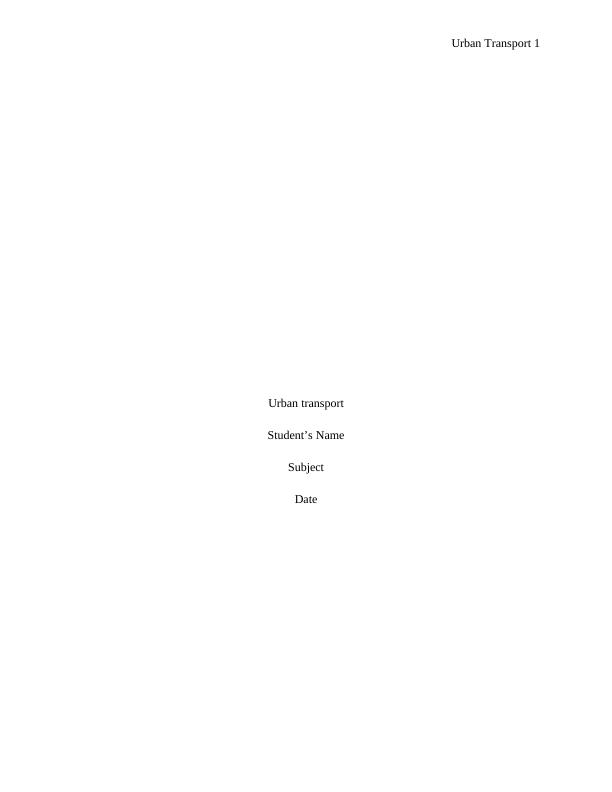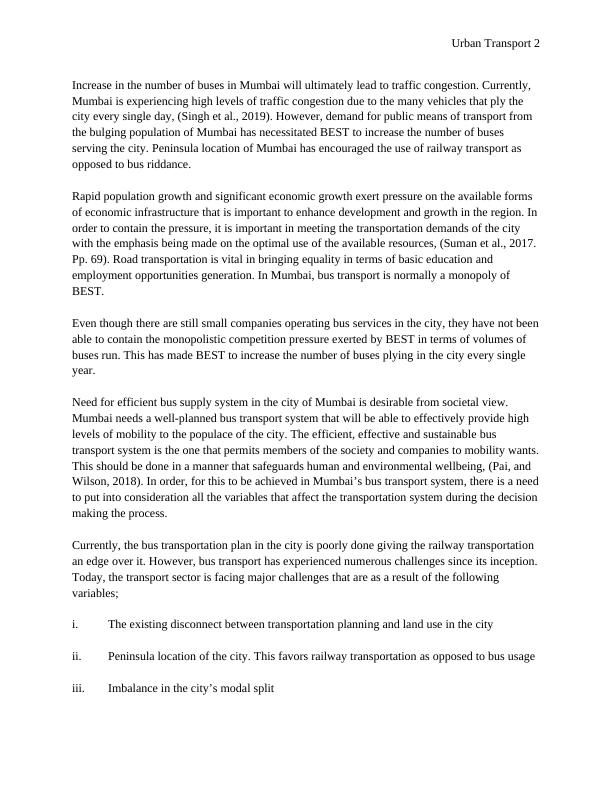Urban Transport Challenges and Recommendations
Emphasizing the quality issues in the urban transportation system of Mumbai and assessing the efficacy of the current transportation system processes and procedures.
5 Pages1228 Words482 Views
Added on 2023-03-31
About This Document
This article discusses the challenges faced by urban transport in Mumbai and provides recommendations for improvement. Topics include traffic congestion, bus service monopoly, infrastructure issues, and fuel prices. Recommendations include transport regulations, sector restructuring, and resource mobilization.
Urban Transport Challenges and Recommendations
Emphasizing the quality issues in the urban transportation system of Mumbai and assessing the efficacy of the current transportation system processes and procedures.
Added on 2023-03-31
ShareRelated Documents
End of preview
Want to access all the pages? Upload your documents or become a member.
Urban Transportation in India - Assignment
|17
|3458
|22
Case Study and Project Proposal
|9
|2433
|102
Statistical Modelling for Public Transport System in NSW
|10
|1794
|100
Efficiency and Performance of Transport Industry in Australia
|13
|2758
|315
Challenges Faced by Hamburg City in Global Trade Operations
|5
|1082
|24


